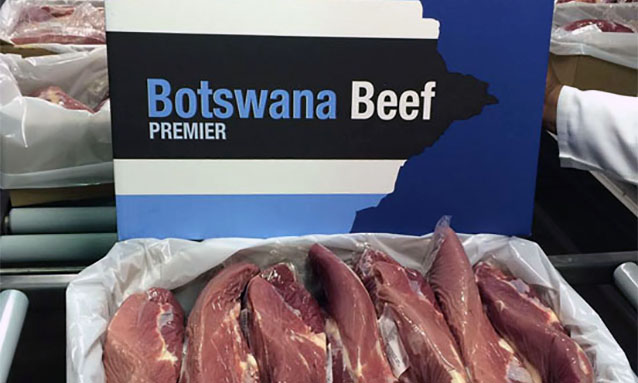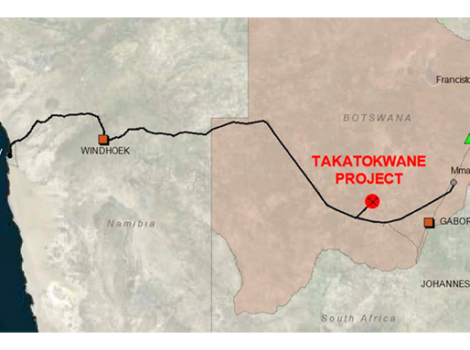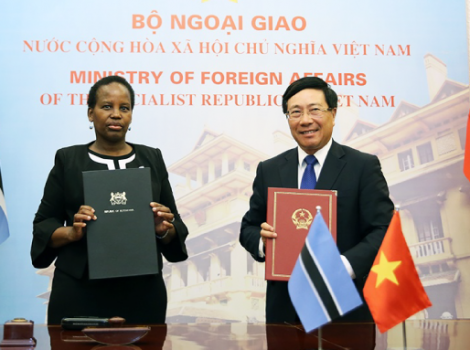
“Though the quality of Botswana beef is high, Botswana Meat Commission could be stronger on marketing strategy and differentiation, and exports are heavily focused on South Africa and the EU,” says an African Development Bank (AfDB) report that analysed Botswana’s food and agriculture delivery systems.
The Bank expresses hope that “improved branding” and “increased marketing capacity” at BMC could help it seize new market opportunities – which a private sector that will soon compete with the Commission will surely want to capitalise on.
What is odd about the AfDB having to make these observations and recommendations is that they were actually made eight years ago by European consultants. These consultants were commissioned by the Ministry of Trade and Industry and the European Union (EU) to undertake a study for the beef sector under the Private Sector Development Programme.
“The general public outside Botswana is not aware of the quality beef the country exports. Very little communication has been carried out to promote beef as a national product. Botswana has been granted a preferential relationship with the European countries through agreements between the EU and SADC region.
Nevertheless, it has failed to take advantage of these agreements to better position its products in the lucrative but highly demanding EU market. The result is that the beef exported from Botswana is not sold at the best possible price,” says the PSDP report.
It could have added that now, unlike in the past, it is near-impossible for Botswana consumers to get BMC’s canned beef – which is hands down the tastiest in the SADC region and possibly the entire world. For some unclear reason, even big-chain stores no longer sell this beef, which is called ECCO.
The PSDP report says that “ECCO has struggled to dominate the market due to the presence of more aggressively sold products from South Africa and Namibia sold at parity or even lower prices.”
Around the same time, a similar observation was made by the Trade Counsellor at EU Botswana, John Taylor, who said that while Botswana beef has a “unique taste”, most people in Europe don’t know about it. He added that if the branding of the product was developed to the desirable standard, “its price would go up.”
Other than the implied suggestion that BMC should be more aggressive and reconsider its price structure, the PSDP report explicitly states that a redo of the ECCO brand itself is long overdue:
“The brand has existed for many decades and has not been refreshed. It requires updating.” The rebranding should fully capitalise on all the positive attributes of Botswana beef such that there is “creation of a Botswana beef national brand coupled with claims e.g. quality, sourced from communal farming, antibiotics and hormone-free.” That is not happening at the moment.
In the course of studying Botswana’s beef value chain, it struck the European consultants as odd that BMC uses the ECCO brand to sell both meat for human consumption and pet food. In the report they subsequently put together, the consultants say that this practice is ill-advised and should be stopped and that different brands should be developed for these two markets.
“The use of the same brand name and logo for products marketed for human and animal consumption doesn’t favour the sales and could confuse consumers,” says the beef value chain analysis report that was produced on behalf of the PSDP.
To avoid such confusion, the EU consultants advised BMC to renew the ECCO food brand by way of modern packaging and artwork which would include claims such as “100 percent Botswana beef” and “Made in Botswana.” A related piece of advice was that a logo of guarantee of quality should be developed.
In the year that President Mokgweetsi Masisi came into office, he assured farmers attending the Gantsi Agricultural District Show that government is committed to ensuring that the problem of delayed payments is speedily resolved. That was in July 2018 and five years later, there has been no such resolution. The AfDB report identifies late payments to small farmers among major challenges that they face.
“Those who have difficulties servicing their loans may then struggle to access finance in the future. This is one of the reasons why farmers often opt to sell to feedlots for quick cash even if the prices are less favourable.
Low prices result in poor margins, also making it difficult for some farmers to service their loans, or to reinvest in optimal husbandry practices. BMC should shorten its payment period to creditors if it is looking to retain smallholder suppliers in the face of growing competition from private feedlots that can be expected with the liberalisation of the beef export market,” the Bank says.
Part of the problem is that the Commission uses technology that one too many small farmers (most of them elderly and living in rural areas) would have great difficulty embracing.
“BMC manages its payments through an internal system which is linked to commercial banking outlets. Most payments are made by transfer to farmer accounts, but sometimes they are done by cheque. Whilst mobile payment systems have proved efficient in other countries and sectors, BMC is skeptical about their potential in Botswana’s beef sector, where around 80 percent of cattle are smallholder-owned.
In 2016-17, BMC looked at initiating a cash card system instead of cheques but was met with some resistance due to the low (but increasing) level of commerciality within the sector and lack of confidence in new technologies. Connectivity can also be a challenge for those farmers located in more rural areas.”
The pricing policy is as problematic for this group of farmers. The policy favours weaners compared to more mature cattle, and this results in farmers selling their young stock. More problematically, this policy is driving a trend towards feedlotting – which threatens to lower the quality of Botswana beef. The Bank says that feedlotting may turn out to be counterproductive in the long-term as more premium priced segments in export markets demand more naturally-grown beef.
“Some argue that the drive towards feedlotting threatens to undermine Botswana beef’s positioning as a premium brand,” it adds.
Source: https://www.sundaystandard.info/bmc-still-struggling-with-marketing-products-paying-farmers-on-time/
You might also be interested in:



